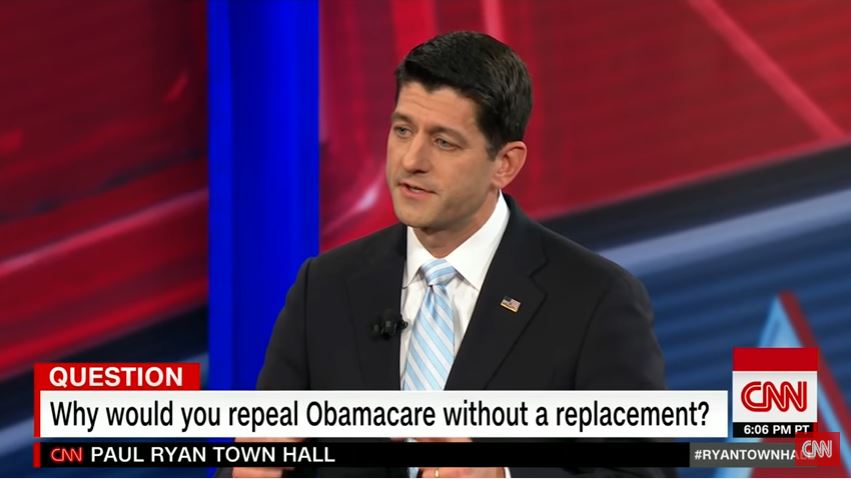
During CNN’s town hall with Speaker of the House Paul Ryan (R-WI), Jake Tapper showed the value of fact-checking conservative misinformation on health care policy -- even in a conversational setting -- by providing strong pushback about funding for Planned Parenthood. But there were several other moments during the event when Ryan pushed false information about the Affordable Care Act (ACA) that Tapper could have fact-checked. Going forward, more media outlets should adopt an aggressive approach to addressing conservative misinformation on health care policy, given the severe consequences of ACA repeal.
During the town hall discussion of the fight over the ACA, the final question on health care came from an audience member asking where the millions of women who use Planned Parenthood to access women’s health care services will go if the Republican Congress defunds the network. When Ryan falsely tried to claim that providing federal funds to Planned Parenthood “commit[s] people’s taxpayer dollars to fund” abortion, Tapper correctly noted that the Hyde Amendment bans taxpayer money from funding abortions.
Tapper also noted the hypocrisy in Ryan’s earlier statements emphasizing the necessity of choice in health care policies, asking, “You believe in providing more choice for people when it comes to health insurance, except for Planned Parenthood?”
But there were also many other opportunities for Tapper to fact-check Ryan as he used the town hall to reiterate stock talking points and push false narratives about the ACA. When asked whether “the government should guarantee health care” for Americans, Ryan falsely claimed that the ACA is failing and that premium spikes were proof that “the law is collapsing.” In reality, during the most recent open enrollment period, more people signed up on the ACA insurance marketplaces than during the previous year, contradicting the conservative claim that people are fleeing the market. Ryan’s claims about premium hikes omit the crucial context that subsidies rise in proportion to premium hikes, mitigating the impact for the majority of enrollees. While the ACA clearly has problems, claims that the law is “collapsing” or in a “death spiral” are clearly false and should be rebutted as such.
When an audience member who survived cancer asked Ryan how the GOP’s plans would impact individuals with pre-existing conditions, Ryan claimed that “state high-risk pools are a smarter way of guaranteeing coverage for people with pre-existing conditions.” While high-risk pools sound like a good idea in theory, they have a long history of problems, as they are typically chronically underfunded, are prohibitively expensive for customers, and provide inadequate coverage. Similarly, Ryan’s claims about the benefits of refundable tax credits and health savings accounts should prompt substantive follow-up questions, as legitimate critiques raise questions about their effectiveness in reducing costs and maintaining coverage.
While Tapper illustrated the value of fact-checking conservative misinformation during the discussion on Planned Parenthood, he ought to have also provided substantive follow-up questions and pushback on some of Ryan’s policy claims. Going forward, media outlets should use any interview, in any format, to hold conservative politicians’ feet to the fire on the issue of the ACA -- to prevent the further spread of false narratives and to investigate the efficacy of proposed GOP policies. The lack of consensus on what a replacement plan might look like, combined with the massive impact repeal will have on the millions who have obtained insurance through the Affordable Care Act, makes it especially vital for the media to ask substantive questions about conservative claims on health care policy.